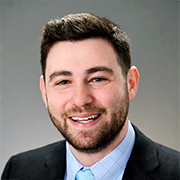Commercial condominium ownership and management is one of the more intricate and complex features in the realm of real estate. As a result, legal matters that arise in these situations may not be easily resolved.
As we await final guidance from the EEOC and MCAD, which will likely be forthcoming later this year, employers should still take steps to prevent workplace harassment.
Overview:
In a recent Massachusetts Appeals Court decision, Williamson v. Barlam, No. 22-P-985, 2024 WL 628820 (Mass. App. Ct. Feb. 15, 2024), Mark Williamson, the plaintiff and trustee of a realty trust that owned a commercial condominium unit (Williamson), brought an action against the trustees of a 902-912 Massachusetts Avenue Condominium Trust (Condominium Trust) and others for, among other things, tortious interference with a contract, civil conspiracy, and violation of the unfair trade practices statute, G.L. c. 93A.
The Superior Court judge granted defendants’ motion to dismiss for failure to state a claim and denied Williamson’s motion for reconsideration and renewed motion for leave to amend. The Appeals Court vacated the judgment that dismissed the claims for breach of fiduciary duty, waste, mismanagement, and misappropriation of trust assets, tortious interference, and civil conspiracy, the G.L. c. 93A claim against David Barlam and Gabriel Barlam (individually), and the claims for declaratory judgment.
The Case:
Williamson, as trustee of the 902 Mass Ave Realty Trust, owned a commercial condominium unit in Cambridge (Unit). The Unit is one of five (5) units in a commercial condominium, which is managed through the Condominium Trust, created by a Declaration of Trust pursuant to G. L. c. 183A.
The Declaration of Trust contains a noncompete clause, preventing businesses in the units from substantially competing with each other without the assent of four (4) trustees. The term “substantially compete” is not defined by the Declaration of Trust, and such instrument does not otherwise provide examples of the nature of businesses that would or would not substantially compete with each other. Unit 906 is home to the Mass Ave Diner (owned by the Barlams), and Unit 912 is home to The Plough and Stars (a full-service Irish restaurant and bar).
On two occasions, Williamson entered into a Purchase and Sale Agreement in order to sell his Unit. The first buyer intended to open an Italian restaurant, and the second buyer intended to open a Japanese restaurant. The trustees of the Condominium Trust, on both occasions, denied the sale of the Unit, claiming the sale of the Unit would violate the noncompete clause. Williamson alleged that the trustees illegally interfered with both attempts to sell the Unit.
In rendering its decision to vacate judgment, the Appeals Court analyzed, generally, the enforceability of a noncompete clause. Noncompete clauses are valid unless they are arbitrary, in violation of public policy, or abrogate a constitutional right. However, the Court noted, “Where important terms of the clause are undefined it may be necessary to resort to parol evidence to construe its meaning and scope. In any event, the condominium trust is in essence a contract, and interpretation if a contract looks principally to the intent of the parties, construed in light of the facts and circumstances surrounding its creation.” As a result of the ambiguous nature of the noncompete clause, the motion to dismiss was vacated.
The Court also analyzed the actions of Gabriel Barlam (a trustee of the Condominium Trust) and David Barlam, owners of Mass Ave Diner, and their alleged intentional interference with the attempted sales of Williamson’s Unit. The Court found that the alleged misrepresentations and threats employed outside of the regular course of business by the two individuals were sufficient in bringing a claim of tortious interference with a contract.
Finally, the Court found that Williamson sufficiently pled a claim for violation of unfair trade practices under G.L. c. 93A. The Court noted that the claim was only partly valid, “Because the 93A claim arises from the private relationship between Williamson and the trustees and condominium unit owners, these are principally private transactions that are not within the purview of a 93A claim.” However, David Barlam was not an owner of a unit or a trustee, and while Gabriel was a trustee (and claiming to be upholding the noncompete clause), there were circumstances in which he was acting in a different capacity (as owner of Mass Ave Diner), which could leave him liable for a G.L. 93A claim.
Key Takeaways:
1. Noncompete Clause: At the center of this case is the issue of enforceability and clarity of the noncompete clause found within the Declaration of Trust. While declaration of trusts rarely contain noncompete clauses, one lesson is to be taken from this case is the importance of unambiguous and defined terms within specific clauses. Here, the noncompete clause was drafted in the Declaration of Trust. However, the phrase “substantially compete” was not clearly defined by the instrument and did not provide a governing standard should there be an issue between the unit owners. The trustees could have sought to amend the Declaration of Trust to provide clarity where the language contained therein was ambiguous. This case highlights the importance of explicit and precise language in a condominium’s governing documents.
2. Fiduciary Duty: While briefly touched on in the case, an important distinction must be made when it comes to a condominium trustee’s fiduciary duty. The fiduciary duty is owed to the condominium trust, itself, and not to individual unit owners within the condominium. This can be a complex issue with commercial condominiums, as the trustees are often owners of the units (and businesses within those units), which can create a conflict of interest. Here, while the trustees did not owe a fiduciary duty to Willamson himself, they did owe that duty to the Condominium Trust.


